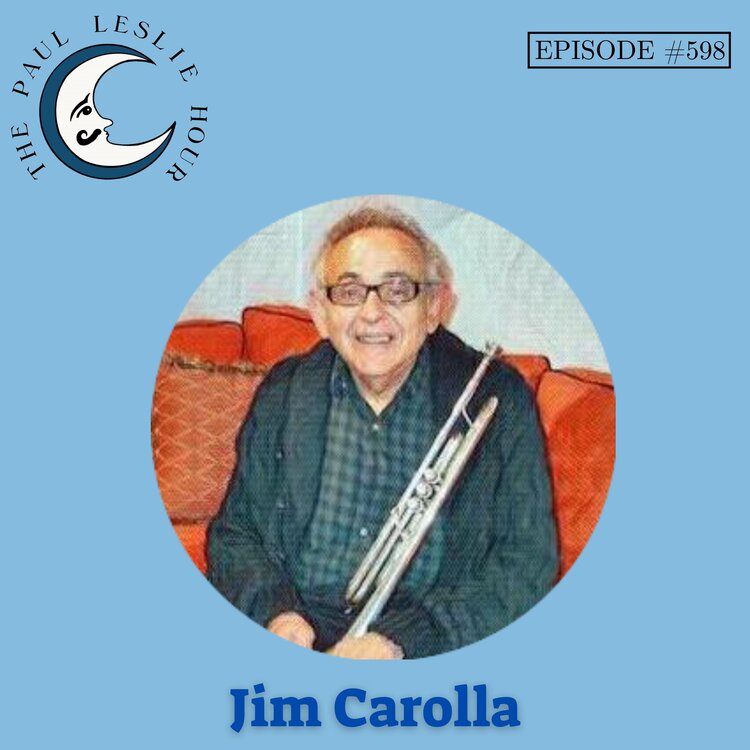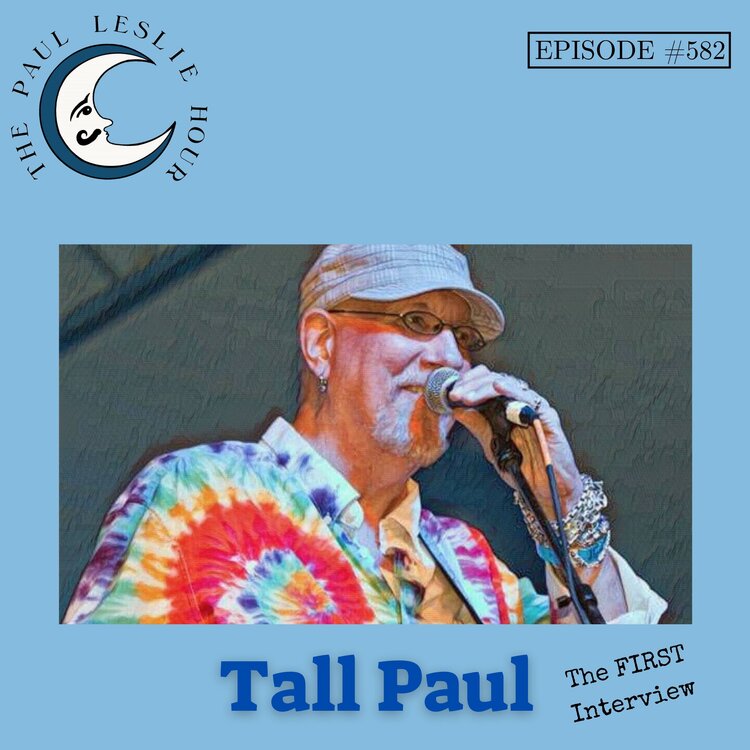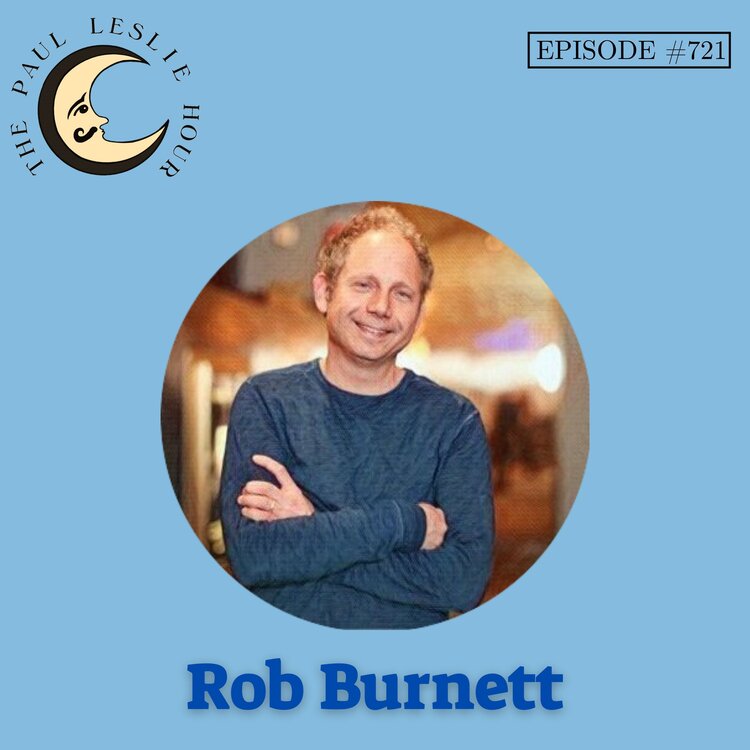The Jim Carolla Interview is featured on The Paul Leslie Hour.
Jim Carolla is a Certified Psychologist, Comedian and formerly was the Host of the show Life Lessons with Jim Carolla, a podcast that is philosophical in nature.
He is also a Jazz Musician who has performed with the likes of Dizzy Gillespie. Jim Carolla is also the patriarch of media personality, comedian and author Adam Carolla.
It’s an interesting take from Jim Carolla. Right here on The Paul Leslie Hour.
Help support the show here.
Subscribe/stream on the following platforms:
• RadioPublic • Stitcher • iTunes • Spotify • Player FM •
• Overcast • iHEARTRadio • CastBox • Acast • Deezer
Consider sharing this interview on Social Media.
Like us on Facebook
The Official Transcript
Our special guest, Jim Carolla, is a certified psychologist, jazz musician, and also the father of a past guest of ours, Adam Carolla. He’s also the host of the podcast ‘Life Lessons with Jim Carolla.’ Mr. Carolla, I’m much obliged.
Okay, yeah
My first question: who is the real Jim Carolla?
Ah…that’s a big one. I don’t know (laughs). I know there’s different parts of me and sometimes come to something that fairly feelsmore real…not a consistent anchor of something called…somebody called “the real Jim Carolla.”
Well take us back. What was life like growing up?
I’m from a Sicilian background and my father came here from Sicily in about 1900 and his brothers and sisters invented their life in south Philadelphia. It was kind of a Sicilian family ghetto, Pisans, and everybody else who came from Sicily ended up in south Philadelphia. So I grew up like that in kind of an immigrant first generation family quite, I wouldn’t say poor but, you know, just the regular like immigrants having somehow survived. So that’s kind of how it all begun.
What were your parents like?
Well, let’s see…my father…they both spoke English so that…growing up…so I had the chance to get a mixture of Italian and English but…so communication was…a lot of my relatives didn’t speak English. People first coming over, it took them a long time but my father picked it up quite quickly. My father was a musician. He was a trombone player and what I remember mostly about him in life was he was constantly working on the trombone, studying it, encouraging me. That’s how I got introduced to the trumpet. My mother worked very hard because my father didn’t really earn enough of a living to support the family. My mother worked in the sweat shops, the tailor shops, very hard…very hard life. She kept the family going because she was making a living. I have three brothers. I’m the youngest. I’m the only one left in the family. All my family’s deceased. That was kind of…I would say that hard times were a fact of life, particularly in the early Depression in the 1930’s and through there. Uh, I was always having a hard time but somehow…I’m very thankful to my mother who was always able to keep it going. That might be a start there.
So, tell us about this music that you heard. You said he played trombone. What did you grow up listening to?
We didn’t have a record in the house or a record playing machine so anything I had to hear had to be really in the school. I went to Bach Vocational School where you could learn a trade, but they did have somewhat of a little music department… very primitive. Children there were there to learn tailor, to work in a tailor shop, automotive car mechanics…learn a trade kind of thing. Now music that I’ve heard…really the first exposure to me was to jazz. I mean, I would hear some of that concert band music but not… didn’t really get into it… didn’t even have my own recording machine. But I got interested in jazz early. I really liked the sound of it. Chet Baker was my first, my first idol. I eventually got an album of his and I’d listen to it all the time and truly tried to copy his style but as I got out in the world full of musicians, I started to play some jazz myself and then use to listen to Miles Davis and Dizzy Gillespie. I once had the great honor of playing on the same stage with Dizzy Gillespie, his band. I was working. I was in a band that was his back-up band. He being one of the greatest trumpet players, it was a real honor for me. So…I’m in my twenties, trying to learn to play jazz. In those days they didn’t have the college…today you can get a degree in jazz at USC, West Chester State and they actually have a Master’s degree and a Doctorate’s degree in jazz. In those days, it wasn’t that organized. You had to really listen to other players. Mostly, I listened to black players. They were the first really playing jazz to ask them about how they do it, what they think of when they’re playing, trying…you learn from others at the beginning. So I would say jazz…there wasn’t much of a classical background. That came later. My favorite composer that I loved the most was Stravinski and the Russian style.
Do you have a favorite record of all time?
Of all time? That’s a lot of time. Who would I say would be a favorite record? Well maybe the one I started with since I learned so much from it and that was Chet Baker and I don’t even know the title of it now but I do have to give him a lot of credit because until I learned the beginning part of it. Then there’s a guy, Stan Getz, as saxophone player was a real idol of mine. Oh, and many, many musicians…but mostly jazz and particularly, the bee bop era is the place I grew up in.
What about the interest in psychology? When did that come into play?
That came late. I was a musician on the road for a long time and realized I couldn’t raise a family. Being a musician, it was a difficult business to try and make any kind of living. So, I kind of picked the way of going to school and would go for a while and then go back and play again but finally I got a degree in education. I began to teach school in public schools but I was also doing my…I went into therapy myself…psychotherapy…and I felt like I could do it. I knew one of the directors in a residential treatment center for emotionally disturbed children and I worked with psychiatrists and so on and then they said, “You have a talent for this. You ought to go to school and get a license for it.” That was like…by that time I was like close to, I was in my forties somewhere when I went to grad school…to graduate school…I got my license and I’ve been practicing for about twenty-five years now, private practice. I’m in Sherman Oaks, California.
When I interviewed your son, Adam Carolla, one of things that I found out through research: I knew of a few things that he had done but I had no idea the breadth, how many different projects he’s worked on. Did you teach him his strong work ethic?
No, I didn’t, cause I don’t think I had one myself particularly in early times. Well you know, his grandfather…I guess I taught him to work, maybe by example. He saw that I went to school and maybe saw that I was working on myself, trying to get degrees and playing obviously, he saw. That might have been an example. His grandfather was a hard worker and his grandfather, I think, taught him cause he’s very skillful with his hands and carpentry and I think a lot of that has to do with his grandfather. So that might be a way to explain that.
The name of your podcast is ‘Life Lessons with Jim Carolla.’ How did you get the idea to do this show?
Well, Adam has pretty much worked with different kinds of people. You know…entertainment people and certainly comedy and I thought maybe we could have a serious, kind of go for more serious depth about the meaning of life or its purpose of life. So I just asked him. I said, “How about if I develop something to do with people really soul searching and asking themselves, “Who am I?” and, you know, what’s the purpose of my life, the meaning of my life?” So, he said, “Okay.” He said, “Try it.” So I began that way. I did a lot of experimenting. So, I think I’ve had about fifty or sixty shows now. So, it came about that way, me asking him for one of his networks to be a probing, in depth show with the idea of ask the question, you know, “What’s the purpose of my life?”
Well, on that note, I have a couple of somewhat soul-searching kind of questions for you. How do you define a great life?
Great life…well, I think for one to be…to work on themself…to work on themself to a higher consciousness…I think, I don’t know if I’d call it a great life. I would say that would be a purposeful life of working towards expanding, going towards a higher consciousness, developing, trying to see the areas of life that are, that have been…taking the wrong road and begin to repair the life where the repairs are needed and working towards what would kind of be a spiritual life, higher consciousness, a spiritual life…and that’s where would be the real purpose of life and that would be the greatest thing a human should obtain on this earth, is to find his real spiritual birth.
What do you find or what do you believe most people are missing in their life?
Well, just that…trying to find other ways of life, expand the egotistic part of life, our personality . That, to me, there’s something really missing. So no matter how successful you are, on that level the part’s that’s missing is that the spiritual life is the part that really needs to be obtained, this higher consciousness. So, when that’s missing, then all the ways we try to make up for it doesn’t make up for it unless you can find a spiritual path either through traditions, religions and Christianity and so on so you can develop kind of a soul soul develop.
How important do you think positive thought is?
Well positive thought, I’m learning later in years, that if you have a negative thought, it’s a powerful…it has a powerful effect on the body. A negative thought has an effect in the brain very much. I have something I call ANT, automatic negative thinking. In fact, we’re working on thatnow on here. With automatic negative thinking, when we’re in a negative state, it has a tremendous effect on the body, mind, produces moods, the difference between angry moods and so our whole body is affected by that…the blood pressure…everything. So the importance of negative thinking is something we’re working on right now on the show. It’s like a lot of people weren’t aware of what an impact negative thoughts have.
Yeah…I listened to the first of those broadcasts on ANT and I found it really, really interesting. I listened to that today actually.
Okay, I’m still doing that series. Do you know which one you listened to?
I listened to the very first one. It sounded like it was the first of two parts, where you went over like the various internal languages that people use like, or external when they say things like, “You never call me,” or “I always am late.”
Oh yeah
That kind of thing. That was very interesting. I think it’s something most people are guilty of.
Right…yeah….we all are. We’re just not aware of the affect of particularly negative thinking…and then there’s the opposite…positive, you know, it enlightens the body. Light relaxes the body. Negative tends to tense up the body.
The world is something that’s always changing. It always will change as long as we’re here. When you look at the young people today, there’s so much emphasis on the cell phones and the computers and email. What advice would you give to young people?
Yeah, that’s a tough one. Young people are really in to all the technologies. In my opinion, I think that’s part of also groping for something. The intimacy of all that material of the texting, allthat, making a contact…just a lot of electronic things has lost some of the capacity of the ones who want intimacy. The electronic wall seems to be…it’s passive entertainment. Looking at it, it has a real passivity to it. I would say, really begin to really ask that question in your life. What’s the purpose of my life? And to not to rely on…not to say you shouldn’t use this technological material…but to more pursue the meaning of my life…how they connect with the community or other people that are really asking that question. That’s what I think the real goal of your life is. I would say that.
What is the best thing about being Jim Carolla?
One thing is my love for music has been, for me, a real wonderful, creative thing. The other thing is, the very creative part of me…being a therapist is a very creative, a very creative within the session in that office when I say that people come to do the work, that office is like the first time or place where you may come to things…you may have insights and ideas for the first time in your life through the work you would do, for example. I think the best part is I work with them very creatively and I learn a lot about myself. So between music and the creativity of psychotherapy would be the best thing I do.
My last question: for anyone who’s listening to our interview, whether they’re listening to it on the radio or they’re listening to it online wherever, what would you like to say to all the people who are listening in?
That your life is very important, the little time we have on this earth, and to make the best use of it by asking that question, “What’s the real purpose of my life?” And then to pursue it however you can get at it and if you need to have psychotherapy if you need to do that…whatever it would be that would help you with that question. So you need to pursue that and when you see things that are not going in that direction and to begin to, so really examine life…whatever that would be for each person. And psychotherapy, it’s not just used for pathology, it can be used for a real search…psychic search…so that you have the freedom of not being caught in a false self, emotional bodies…different things that other people call that and you have the freedom then to pursue the path of your purposefulness.
Well spoken.
Thank you.
Well thank you very much for doing this interview Mr. Carolla.
Okay. Well thank you for asking me.
Alright, well you have a good one.
You too.
TRANSCRIBED BY LORI DOMINGO


